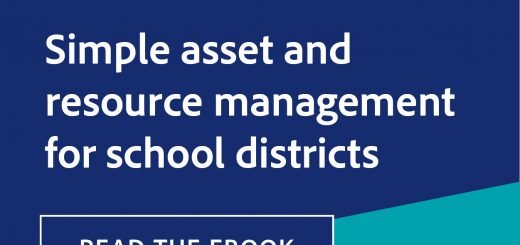College leaders refocus attention on their students’ top priority: Jobs after graduation
PROVIDENCE, R.I. — Friday mornings on a university campus are usually quiet times. Savvy students plan their schedules to avoid Friday classes, getting a head start on their weekends.
But at Brown University’s Center for Career Exploration, there’s a steady stream of visitors, checking out jobs and internships, meeting with advisers and occasionally stopping on the way out to scoop up a few colorful pieces of hard candy from the bowl on the reception counter.
In the center, steps from the university’s main quad and across the street from the college bookstore, everything is brand new, from the furniture to the stenciling on the window to some of the staff.

After a two-year planning process, Brown has revamped and renamed its career center and is more than doubling its number of advisers, from 13 to 28.
It’s an example of the new attention being devoted to career services by universities — even top universities, whose students likely won’t have trouble finding jobs — as consumer demand gets louder for a tangible return on investment for a degree.
At a time of intensifying competition for students, “career success” is the top reason people give for getting a degree, a new survey of alumni by the workforce analytics firm Lightcast found.
That’s driving institutions to beef up career services staffs and budgets, promote career directors to the highest levels of leadership and start offering career advising to students from the time they put down their first-year deposits.
“If you’re in a market where prospective families are asking for assurances about this, and you can’t give them an answer, that’s really dangerous. They’re going to opt out.”
Kelli Armstrong, president, Salve Regina College
At least one university has upgraded “career preparation” onto its list of four core strategic priorities.
That this wasn’t the case before might come as a surprise to students and their parents. But when William & Mary promised in its new five-year plan to help students “thrive from their first job to their last,” the move was greeted by the National Association of Colleges and Employers, or NACE, as “a profound shift regarding the importance of career education at research universities.”
Related: Aging states to college graduates: We’ll pay you to stay
Career services “has been sort of a stepchild on campuses. But I think that’s starting to change because of what students want,” said Ben Wildavsky, a visiting scholar at the University of Virginia School of Education and Human Development and author of the new book “The Career Arts: Making the Most of College, Credentials, and Connections.”
For most students, the change can’t happen soon enough. Fewer than one in five of the graduates in that Lightcast survey strongly agreed with the statements that their universities and colleges had invested in their careers and helped them understand career opportunities, create career plans and network with employers or alumni.
For years, at some universities, talking about careers was seen as “antithetical to an education,” said Rashid Zia, dean of the college and a professor of engineering and physics at Brown.

Now institutions are increasing spending on career services, NACE reports.
They’re also transforming the ways they provide career advice.
Rather than keeping advisers in one place, for instance, many universities are now dispersing them across campuses to counsel students with interest in particular careers and majors.
Related: What’s a college degree worth? States start to demand colleges share the data
At Ohio Wesleyan University, “career catalysts” have been assigned to “career communities” of students interested variously in fields including economics and business; education and communication; entrepreneurship; humanities and the arts; health; and science, technology, engineering and math.
That means “having career coaches in the different academic departments, where students are every day,” rather than in the single previous centralized but “out-of-the-way” location on the third floor of the campus center, said Megan Ellis, executive director of what has been renamed Career Connection and whose staff she said has more than doubled, from four counselors to nine. If a student has a question about getting a job, Ellis said, “faculty can literally walk them down to the career specialist.”
Washington University in St. Louis, too, has created career communities — one each in business; arts, design and media; healthcare and sciences; government policy and social impact; technology, data and engineering; and “career exploration,” for students who haven’t yet settled on a field. It offers separate mentoring programs, employer events and alumni networking for each group.
College graduates who felt that their colleges or universities invested in career services were twice as likely to agree that their degrees were worth the cost.
Career advisers at the University of St. Thomas in Minnesota also have been newly assigned to the university’s separate colleges. It’s a way to make career services “unavoidable” to students, said Mark Sorenson-Wagner, director of career development and corporate engagement there.
“You have to design this in a way where students can’t avoid it,” echoed Kelli Armstrong, president of Salve Regina University in Rhode Island, which overhauled and renamed its career services operation this fall and moved it into a new space at the heart of the campus. “It can’t be an add-on you want them to run into. You have to bake it in.”
Career offices are also trying to help students understand something colleges and universities have previously struggled to convey: exactly what job skills — or “competencies,” in education jargon — are being taught, in what classes.

“Being able to take what students are learning in the classroom and translating that into competencies is also part of this movement,” said Mary Gatta, director of research and public policy at NACE. “You’re helping students articulate what they’re doing in the classroom and the skills they’re developing in ways employers understand.”
Though students may not think about it this way, for example, humanities courses teach such things as critical thinking and public speaking, said Renée Cramer, provost at Dickinson College, which is also helping undergraduates decipher what job skills they’re learning.
That’s because employers “aren’t coming to campus and saying, ‘I need X major,’ ” said Norma Guerra Gaier, who took over this fall as head of the newly expanded career center at WashU. “They’re saying, ‘I need talent that can work in these areas and has these competencies.’ ”
Related: One college finds a way to get students to degrees more quickly, simply and cheaply
Interpreting what real-world skills students learn in which classes means involving faculty. And their reaction has been mixed, career directors said. Not all are on board with the idea that career education is their job.
“There are some faculty who say that learning is for the sake of learning — that they’re not here to talk about careers,” said Elizabeth Soady, associate director of professional development for arts and sciences at the University of Richmond, which has also expanded its career services. But others “are keyed into that bigger national conversation about return on investment.”
As one way to help address this, St. Thomas has created a fellowship that will pay faculty who help create content related to careers, Sorenson-Wagner said.
“We’re starting with the people who we know support the work we’re doing and who will advocate for the stuff we’re doing, as opposed to naysayers,” he said.

Such naysayers are becoming fewer and farther between, said Armstrong. Salve Regina faculty “are realists,” she said. “They’re watching what’s happening in higher education and they’re rolling up their sleeves and saying, ‘How can we help?’”
In addition to consumer demand, career services are expanding in response to growing anxiety over, and the increasing complexity of, the job-search process, the people who do this work say.
“What we hear from families coming in is, ‘How can you guarantee that my child gets a good job? Because they’re going to have to start repaying these [student] loans immediately,’ ” said Armstrong.
“If you’re in a market where prospective families are asking for assurances about this, and you can’t give them an answer, that’s really dangerous,” she said. “They’re going to opt out.”

Even at Brown, “there’s a lot of stress for every student approaching graduation. And there are students for whom that financial aspect is acute,” said Matthew Donato, executive director of the university’s Center for Career Exploration. “It’s important to acknowledge that and help those students meet their goals.”
Undergraduates are barraged with questions from parents about how many internship offers they’ve gotten, and constantly see social media messages posted by classmates with job offers, said Elisabeth Bernold, a Brown senior.
“That stress, it comes from us as well,” she said. “I think it’s worse for our generation — that you always need to add one more thing to your resumé.”

Ariana Palomo arrived at the university intending to go directly to law school. Now she’s exploring other careers, for which she uses the resources of the new career center. “It’s inevitable to wonder what your future’s going to look like,” said Palomo, a junior.
Fellow junior Mahmoud Hallak plans to get a Ph.D. in physics and hopes to someday work at NASA. But even though he and other doctorate-seeking students like him don’t have to think about careers for a while, Hallak said in the career center, “it’s still a worry.”
Orders to improve career advising — at Brown and elsewhere — have been coming “from the top down,” said Donato.

That’s because of yet another reason for this renewed attention: Satisfied alumni make reliable donors. People who feel that their educations led to their careers are nearly twice as likely to financially support their alma maters, another report, by Hanover Research, found. Strong career services programs that help graduates get meaningful jobs “produce happy, high-performing alumni who are more poised to give,” the report concludes.
Of the more than 9,000 graduates in that Lightcast survey, those who strongly felt that their colleges or universities invested in career services were twice as likely to agree that their degrees were worth the cost. And those who felt their institutions prepared them for careers were nearly six times more likely to think that.
“Success leads them to give back later,” said Sorenson-Wagner, at St. Thomas. “Administrators respond to that.”
Related: Spending summer in class means these college students will be done in three years
In some states and systems, public funding has also begun to be tied to students’ career success. The budget of the Texas State Technical College system, for example, is based in part on how much graduates earn above the minimum wage.
As if to underscore this new priority, a growing number of colleges and universities are moving their career services operations directly under presidents’ offices or high up elsewhere on the organizational chart, a NACE report found.
Career services “has been sort of a stepchild on campuses. But I think that’s starting to change because of what students want.”
Ben Wildavsky, author, “The Career Arts: Making the Most of College, Credentials, and Connections”
That’s a strong signal that helping graduates find jobs has become a top priority, said the newly hired Gaier, at WashU, whose title is associate vice chancellor.
“If we can see more of that leveling up of directors to have a seat at the table, where they can help inform decisions around career readiness and curriculum, that matters for our students,” said Kathleen Powell, a former president of the board of NACE and the chief career officer at William & Mary, where she has been promoted to the rank of associate vice president.
At Grinnell College, the president has directed that the head of career services report directly to him, a spokeswoman said. The college has nearly quadrupled the staff of what it now calls its Office of Careers, Life and Service, from six to 22; the college begins career advising during first-year orientation.
The size of William and Mary’s career services staff has nearly doubled, from 12 to 23, Powell said, and it starts reaching out to first-year students even earlier — as soon as they put down their deposits.
“There is a demand, and rightfully so, for understanding the return on the investment,” said Ellis, at Ohio Wesleyan. “That’s at the heart of this. Going to college is really a big investment. And having a clearly and intentionally designed career office helps make sure there’s a return on that investment.”
This story about college career counseling was produced by The Hechinger Report, a nonprofit, independent news organization focused on inequality and innovation in education. Sign up for our higher education newsletter. Check out our College Welcome Guide. Listen to our higher education podcast.



